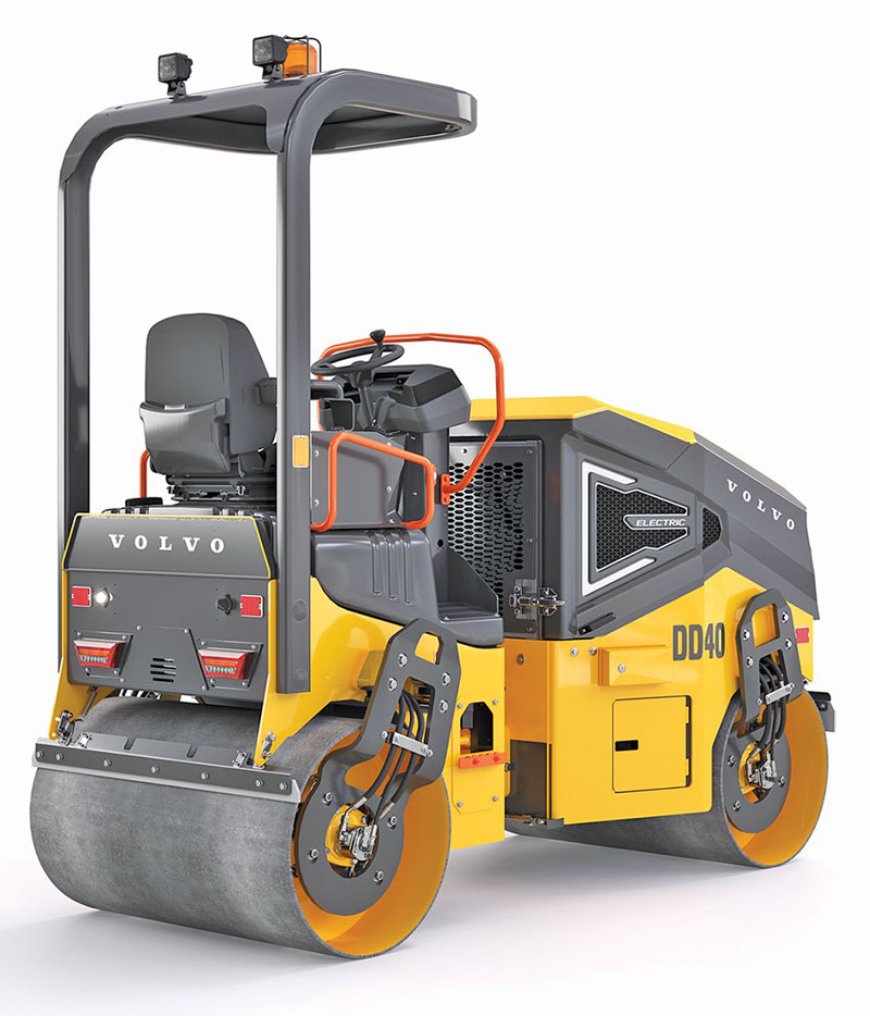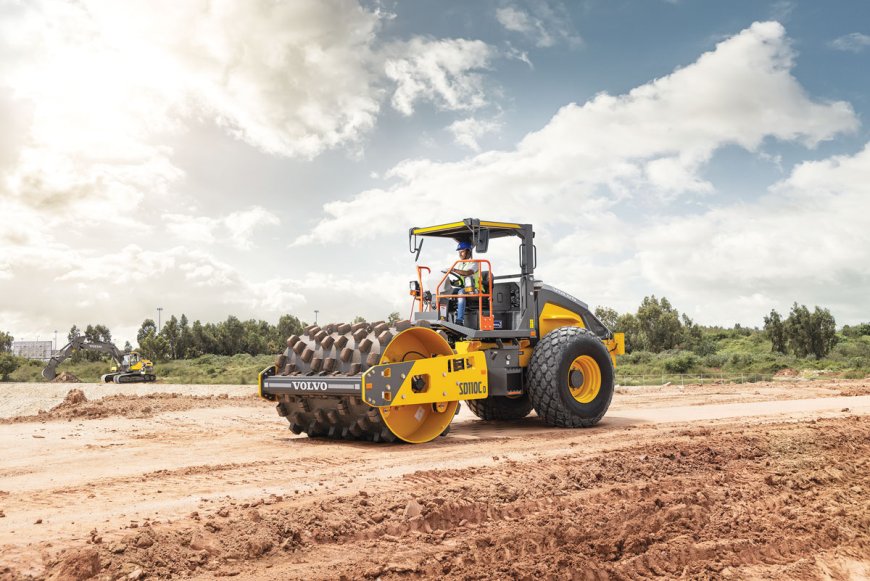Volvo CE India integrates advanced technologies to boost performance, precision, and sustainability in road construction.
The Indian road construction equipment market is experiencing high growth, driven by substantial government investments and strategic infrastructure initiatives.

Dimitrov Krishnan
Managing Director, Volvo CE India
How do you view the current market for road construction equipment in India? What are the key demand drivers today?
The Indian road construction equipment market is experiencing high growth, driven by substantial government investments and strategic infrastructure initiatives. The National Infrastructure Pipeline (NIP) and PM Gati Shakti Master Plan are pivotal in enhancing multi-modal connectivity, fostering demand for advanced construction machinery. In FY2024, equipment sales surged by 15–20%, reaching over 135,000 units, propelled by increased road construction activities and a projected ₹10 trillion capital expenditure. Additionally, the government’s commitment to sustainability is evident through the promotion of electric and hybrid construction equipment, supported by policies like the FAME scheme. These factors collectively underscore a dynamic market landscape for road construction equipment in India
Please provide a brief overview of your key road construction equipment offerings (e.g., pavers, compactors, milling machines, HD trucks, any equipment used for road construction).
Volvo CE offers a robust portfolio of road construction machinery tailored to the diverse demands of the Indian infrastructure sector. The lineup includes advanced asphalt compactors like the DD90C and DD100C, designed for flexible pavement applications with features such as improved visibility, efficient engines, and operator-friendly displays. For pneumatic compaction needs, the PT220C stands out with its fuel-efficient engine and versatility across varied terrains. Volvo CE is also leading the charge in sustainable construction with India’s first indigenously developed electric compactors—DD40 Electric and PT220 Electric—powered by lithium-ion batteries for zero-emission operations, ideal for urban and green projects.
 What are the latest technological advancements incorporated in your equipment to optimize performance?
What are the latest technological advancements incorporated in your equipment to optimize performance?
Volvo CE India integrates advanced technologies to boost performance, precision, and sustainability in road construction. Our Volvo Co-Pilot system, with applications like Compact Assist and Load Assist, offers real-time guidance and 3D mapping for improved accuracy and reduced rework. Intelligent compaction systems ensure consistent surface quality, while our fuel-efficient, emission-compliant engines enhance productivity.
We’re also leading the shift toward sustainability with electric models like the DD40 Electric and PT220 Electric, offering zero emissions and lower noise—ideal for urban road projects. Additionally, our machines feature ergonomic cabins, intuitive controls, and are built future-ready with electro-hydraulic systems and automation capabilities.
What are the key technical parameters that influence the performance of your road equipment?
The performance of Volvo CE India’s road construction equipment is driven by a combination of advanced technical parameters that ensure reliability, efficiency, and quality output. Key among these are engine power and fuel efficiency, which are critical for sustained operation while meeting emission standards. In compactors, parameters like drum vibration frequency and amplitude play a crucial role in determining compaction depth and surface quality. Together, these technical parameters make our equipment not just high-performing, but also reliable and future-ready for the evolving needs of India’s infrastructure.

How are your machines designed to adapt to varied material types, soil conditions, and climatic challenges across Indian roads?
Volvo CE machines are engineered to perform efficiently across India’s diverse road terrains and environments. Our equipment is built with advanced hydraulics, customizable settings, and heavy-duty components that can withstand the challenges of varied material types, soil conditions, and climatic extremes. For example, our compactors feature adjustable compaction force and grade control systems that ensure optimal performance on both hard and soft terrains. Additionally, our machines are built with weather-resistant components to handle the humid, hot, and dusty conditions prevalent across the country.
What are the key challenges road equipment manufacturers face in the current market scenario?
One of the primary hurdles is supply chain disruptions, affecting the availability of key components, which can lead to delays in production and delivery. Additionally, rising raw material costs and inflation have put pressure on manufacturing expenses. Another significant challenge is regulatory compliance, particularly with the evolving emission norms and safety standards, which require constant innovation and adaptation. Manufacturers must also address the skills gap, as there is a shortage of trained operators and maintenance personnel in India. Finally, with increased competition, manufacturers are pressured to offer cost-effective, fuel-efficient, and technologically advanced solutions while maintaining product quality and reliability.
 What is your outlook for the road construction equipment segment over the next 2–3 years?
What is your outlook for the road construction equipment segment over the next 2–3 years?
The outlook for India’s road construction equipment segment over the next 2–3 years is highly optimistic, driven by substantial government initiatives and technological advancements. Key infrastructure projects, such as the National Infrastructure Pipeline (NIP) and PM Gati Shakti Master Plan, are expected to significantly boost demand for road construction machinery as the government focuses on enhancing multi-modal connectivity. Technological integration, including GPS, telematics, and automation, is transforming the market by improving efficiency, safety, and productivity. Additionally, there is a growing shift toward electric and hybrid machinery, aligning with sustainability goals. This, combined with projected market growth, positions the road construction equipment sector for strong expansion in the coming years.








